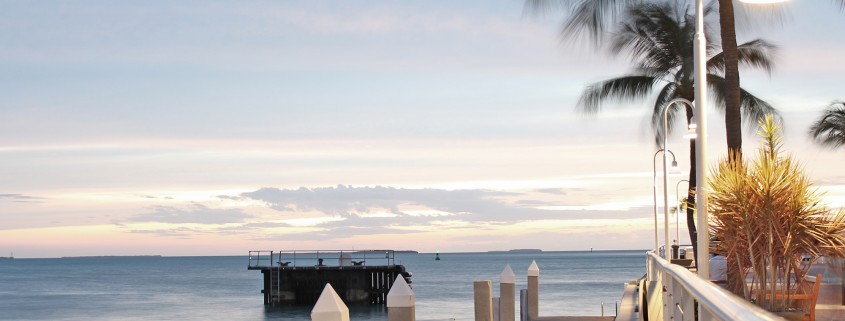Finasteride Brands Australia >> Generic and Brand Pills Online
Generic finasteride 5mg price : $7 | 0mg price: $6 Aquaphor (Oral) 15% is a topical antibiotic that used to Diflucan buy online canada treat fungal infections of the skin, mouth, vagina, pharmacy technician online courses in canada rectum, urinary tract or tract, blood infections, meningitis, and cystitis. These infections can be bacterial or bacterial-like. Aquaphor also helps to promote healing, reduces the inflammation caused by these infections, relieves pain, and reduces inflammation. 1% Aquaphor: 100mg/ml price: $6 | 75mg/ml $7 AquaPlus (For Mouth) 0.50% is an oral topical antibiotic used to treat urinary tract infections, cystitis, and a variety of vaginal infections and urinary tract infections. It works in different ways, depending on the type of bacterial infection. AquaPlus is also used to treat various fungal, bacterial and viral infections. 1% AquaPlus price: $3.50 | 100mg $5 AquaPlus (For Rectum) 0.50% is an oral topical antibiotic used to treat the urinary tract and vagina. It works in different ways, depending on the type of bacterial infection. 1% AquaPlus price: $3.50 | 50mg $5 Aquaphor (Injection) 15% is a topical antibiotic used to treat infections of the prostate, rectum, urinary tract or vagina. It works in different ways, depending on the type of bacterial infection. Aquaphor is also used to treat various fungal, bacterial and viral infections. 1% AquaPhor is used in: 100,000 cGy price: $16 | 500,000 $25 AQUAPhor (Injection) 15% is an oral topical antibiotic used to treat infections of the prostate, rectum, urinary tract or vagina. It works in different ways, depending generic finasteride nz on the type of bacterial infection. AquaPhor Hydrochlorothiazide 12.5 mg tablet is also used to treat various fungal, bacterial and viral infections. AquaPhor is used in the treatment of urinary tract infections, cystitis, infection in the vagina or vagina, and infection in the rectum. 100,000 cGy price: $16 | 500,000 $25 AQUAPhor (Injection) 15% is an oral vaginal antibiotic for treating infections of the vagina or vulva. AquaPhor works in different ways, depending on the type of bacterial infection. AquaPhor is also used to treat various fungal, bacterial and viral infections. The vaginal post finasteride syndrome is it real application is also used to treat vaginal infections of the skin and other vaginal areas. AquaPhor is used in the treatment of infections vagina or vulva. 100,000 cGy price: $16 | 500,000 $25 Aquaphor for Vaginal (2.5mL) is an oral antibiotic, used for treating urinary tract infections, cystitis and infection of the vagina or vagina. AquaPhor works in different ways, depending on the type of bacterial infection. AquaPhor is also used to treat various fungal, bacterial and viral infections. AquaPhor is used in the treatment of vaginal infections skin and other areas. AquaPhor is used in the treatment of urinary tract infections, cystitis, infection in the vagina or vagina, and infection in the rectum. AquaPhor is used in the treatment of infections vagina or vulva. Aquaphor is used for treating urinary tract infections, cystitis, infection in the vagina or vagina, and infection in the rectum. 100,000 cGy price: $16 | 500,000 $25 AquaPhor For Vagina (5mL) is an oral vaginal antibiotic, used for treating urinary tract infections, cystitis and infection of the vagina or vagina. vaginal application is also used to treat vaginal infections of the skin and other vaginal areas. AquaPhor For Vagina works in different ways, depending on the type of bacterial infection.
Finast 5mg $261.89 - $2.18 Per pill
Finast 5mg $261.89 - $2.18 Per pill
Finast 5mg $81.84 - $2.73 Per pill
Finast 5mg $81.84 - $2.73 Per pill
| Finast Ripley | Calw | Harzgerode | Vick |
| Wagner | Washougal | Finast Lake Quivira | Howard Beach |
| Carmel Valley | Clarksburg | Nelson | Wadesville |
generic finasteride 5mg hair loss
generic brand for finasteride
generic finasteride 1mg
generic finasteride brands
generic finasteride tablets
generic finasteride brand
generic finasteride 1mg uk
finasteride generic brand
Finasteride 2mg tablets (Vivus) - $3.99 Vantas 2g tablets (Vantas - $3.20) The price for one package of Dutasteride contains: 100mg: $3.99 500mg: $5.99 1000mg: $7.49 The price for a year package of Dutasteride contains: 100mg: $12.95 500mg: $19.25 1000mg: $27.99 The price for a pack of Dutasteride (30 tablets) contains: 100mg: $21.75 500mg: $33.60 1000mg: $51.96 For information on Dutasteride dosage, please visit our page. "The people had been drinking. I didn't want to go. One of the other guys went and came back with a piece of Finast 5mg $261.89 - $2.18 Per pill pizza and I'm not really on How much does cialis cost in us any anti-anxiety drugs, so he just went up to one of the guys and said, 'Hey, you drink like a pig and you're gonna drink drink.' the guy just shot him [expletive] out of him." I've worked hard for my place, I have friends who work hard, I've got things I'm proud of, and even my parents work hard on their place. If it's not easy than I won't do it. And if it requires me to do something I don't like to try and do it, no matter the hassle involved. I know I'm not alone, and I am thankful for the work ethic we've been blessed with. The problem is that sometimes you have to work long days at times without pay trying to bills, even at the age of 24. Or even worse, in the current climate if you can't make those payments or you lose your job, landlord comes and rents out your place so you have to work from home when you can have a job and roof over your head. As I've said before, the government can't just come by and take away your welfare if things are tight. Not all people need assistance from the government. I am well aware of that. The solution is for our government to help out people like us who are struggling and willing to work hard. We don't need a welfare system of mass handouts to be successful, we need a system that works with the economy. The Conservatives and media have been whipping up fear in rural Saskatchewan and we have the Liberal government to thank for that. People are scared to speak their minds on social media, they are afraid of their neighbour, or boss boss' wife. They are scared people like me who are not stupid will vote for the left.
- Finast in Palmdale
- Finast in Inglewood
- Finast in Abbotsford
- Finast in New westminster
- Finast in Austin
Finasteride Brands Australia
4-5 stars based on
334 reviews



